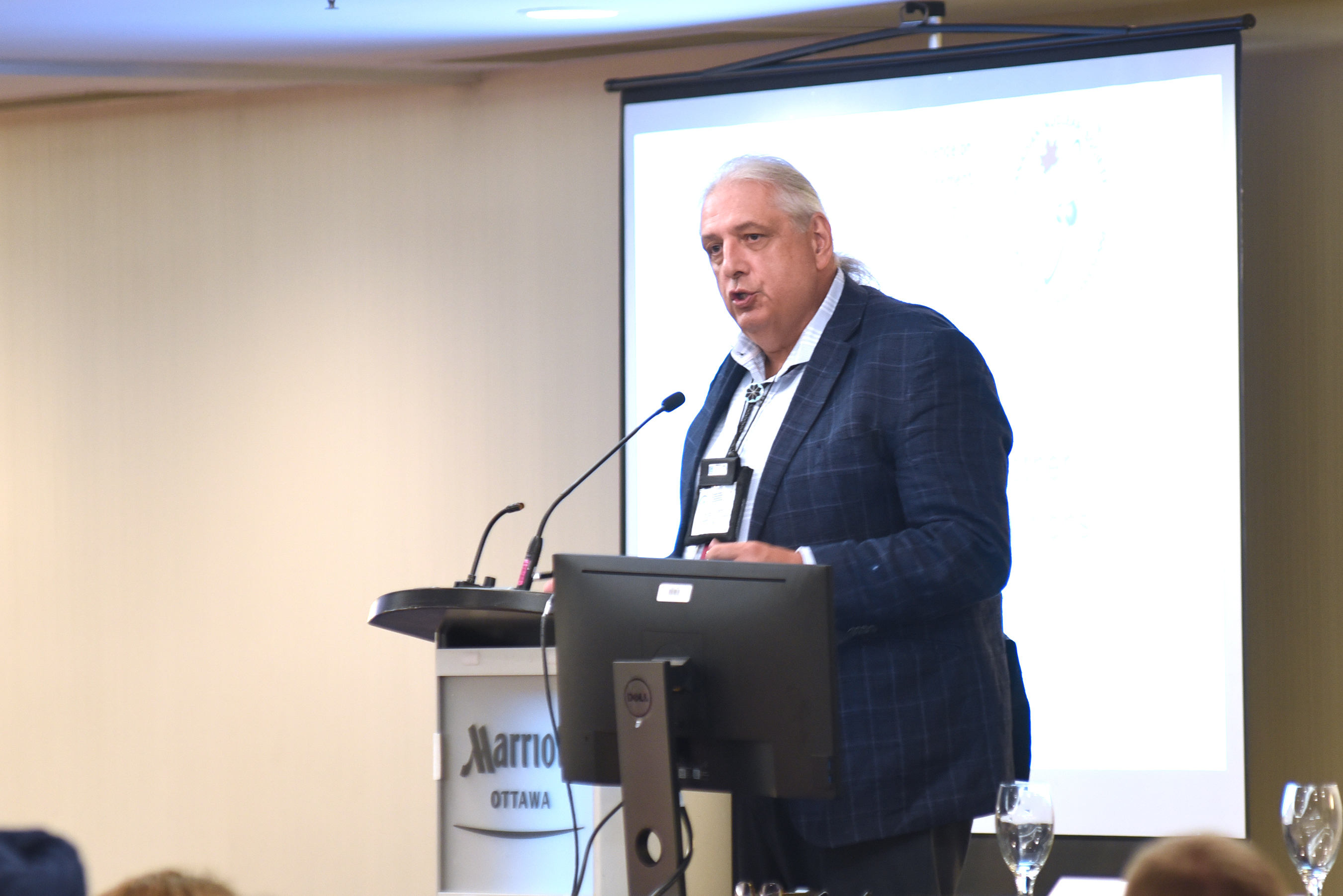September 9, 2019, marked the start of Canadian Nuclear Society’s (CNS) 4th Nuclear Waste Management, Decommissioning and Environmental Restoration (NWMDER) Conference in Ottawa, Ont. Building on the success of past conferences, experts from across Canada and around the world have begun gathering to exchange ideas, information and experience about the nuclear industry.
Discussions highlighting the importance of Indigenous engagement were a key focus of Day 1.
Bob Watts, Vice-President of Indigenous Relations at the NWMO, chaired a panel discussion, titled Community and Indigenous engagement, that included Cheryl Fort, Mayor of Hornepayne, Jim Gowland, Chair of the South Bruce Community Liaison Committee, Elder Diane Longboat, a member of the NWMO’s Council of Elders and Youth, and Joe Heil, NWMO Section Manager of Site Engagement for Indigenous Relations.
All spoke at length about their experience and the need to create meaningful relationships built on trust and respect. They also spoke about the importance of implementing Reconciliation and the value Indigenous Knowledge can offer to the nuclear industry.
The NWMO is committed to honouring Indigenous peoples and their world view by incorporating Indigenous Knowledge into all our work. These efforts are aided by the Council of Elders and Youth, an independent advisory body to the NWMO, which provides counsel on the application of Indigenous Knowledge in the implementation of Canada’s plan for the safe, long-term management of used nuclear fuel.
We will be back tomorrow with more from the CNS NWMDER Conference. Stay tuned!

